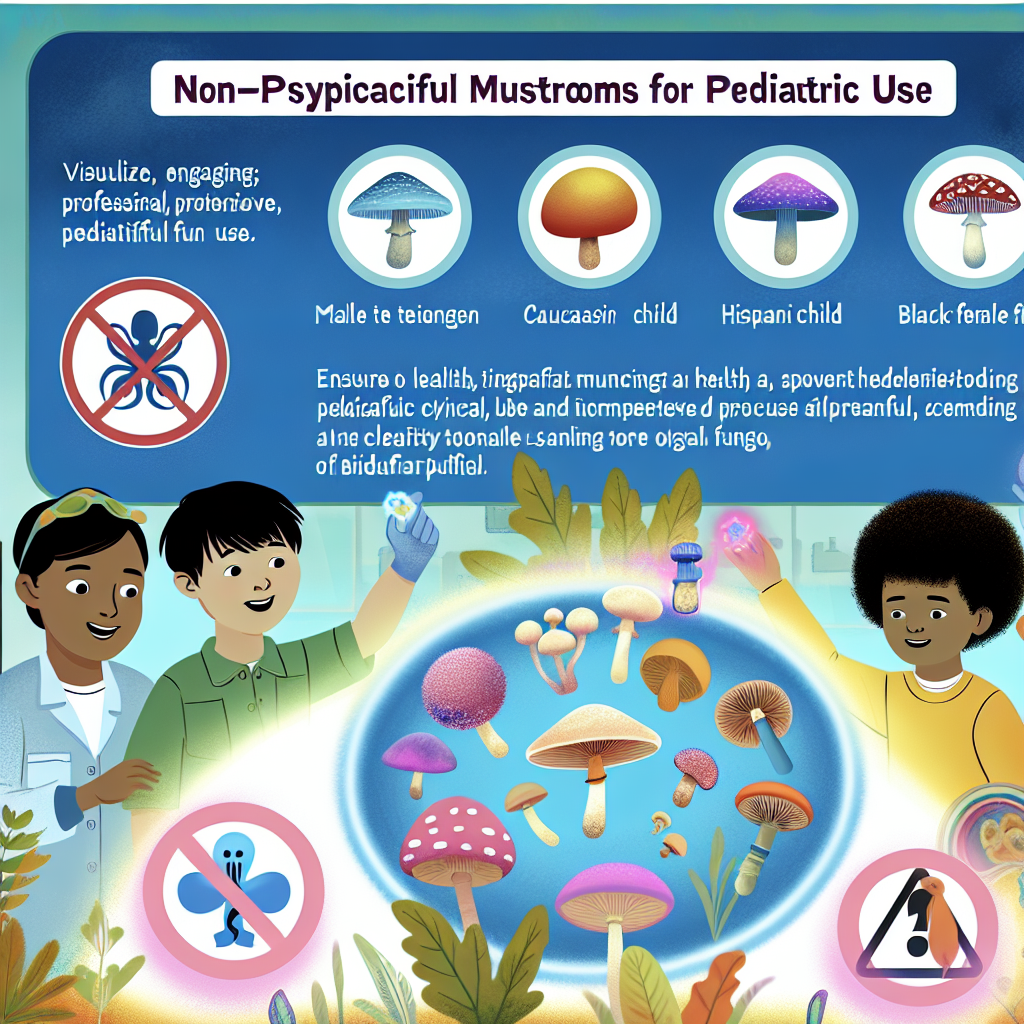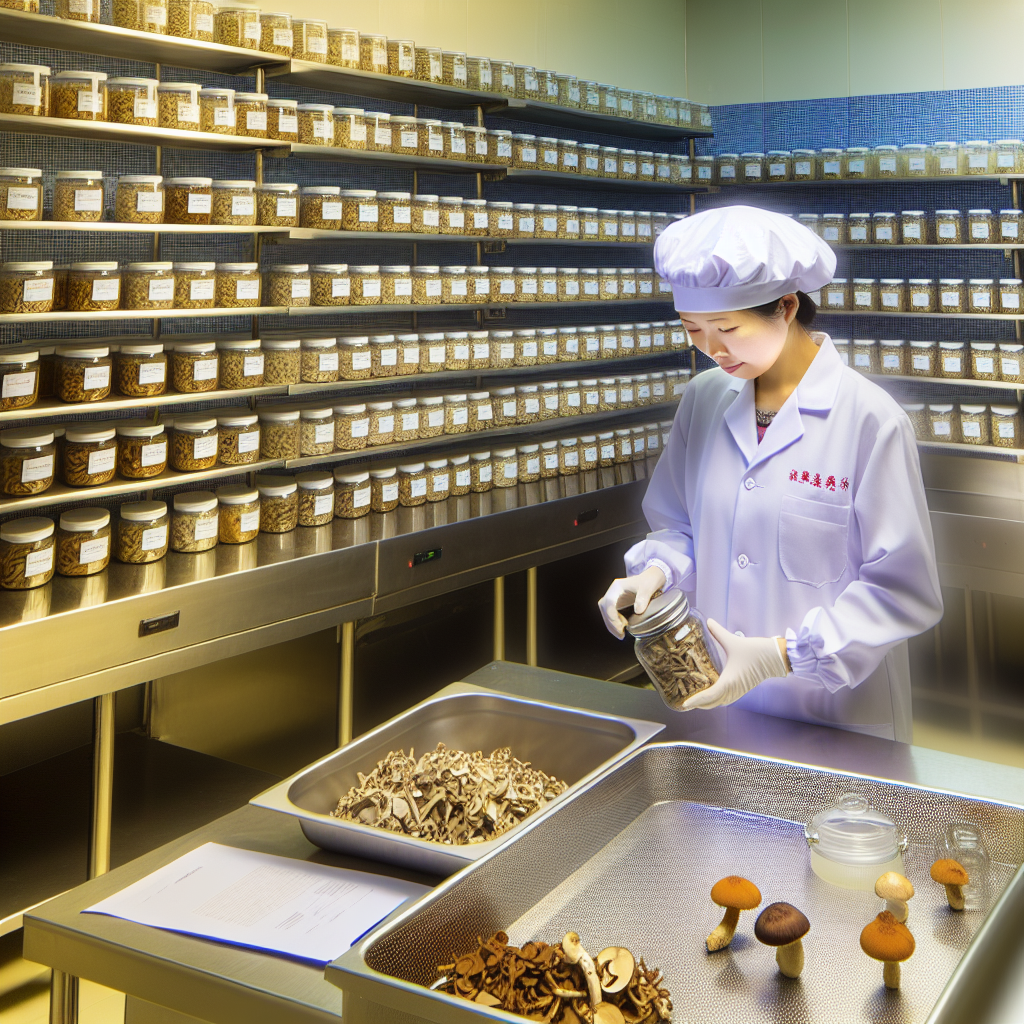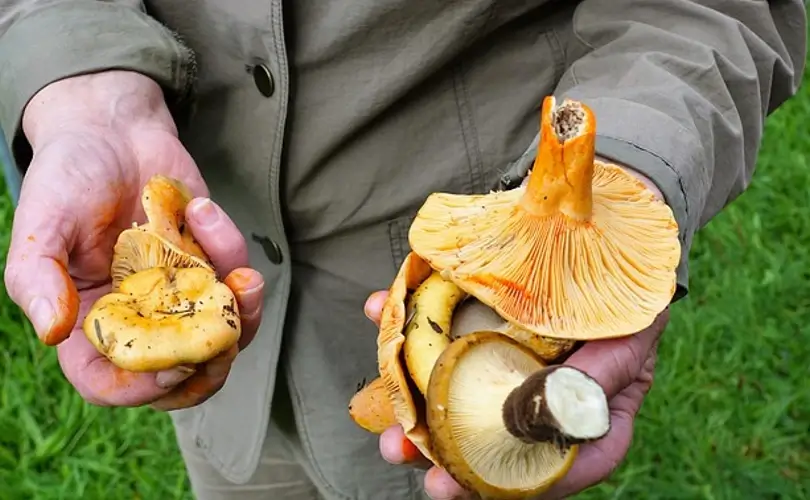Here is the clean, optimized WordPress blog post:
Pediatric Applications of Non-Psychoactive Medicinal Mushrooms: Safety Protocols
Interest in medicinal mushrooms has surged over recent years, particularly concerning their potential for enhancing immunity, reducing inflammation, and supporting overall wellness. While much of this focus has historically centered on adult use, a promising new frontier is emerging: pediatric applications of non-psychoactive medicinal mushrooms. Unlike their psychoactive counterparts such as psilocybin-containing fungi, non-psychoactive mushrooms like reishi (Ganoderma lucidum), turkey tail (Trametes versicolor), lion’s mane (Hericium erinaceus), and cordyceps (Cordyceps militaris) are gaining attention for their therapeutic potential when used safely in children.
Parents today are increasingly turning to integrative approaches to manage common pediatric conditions such as frequent colds, asthma, ADHD, digestive disturbances, and weakened immunity. Medicinal mushrooms, rich in polysaccharides like beta-glucans, antioxidants, and bioactive compounds, offer significant promise as part of a holistic treatment strategy. However, safe integration within pediatric care requires careful considerations—accounting for dosage, sourcing, potential allergens, and underlying medical conditions.
Reishi Mushroom for Immunity: Strengthening Children’s Natural Defenses
Ganoderma lucidum, commonly known as reishi, has been used traditionally in Chinese medicine for centuries to support immune modulation. A Japanese study published in the journal Evidence-Based Complementary and Alternative Medicine reviewed reishi extract’s immunostimulatory effects and noted its ability to regulate cytokine production, an essential function in fighting infections and reducing inflammation ([source](https://www.ncbi.nlm.nih.gov/pmc/articles/PMC5569602/)).
Although much of the current research focuses on adult applications, reishi’s adaptogenic properties offer promising implications for children, especially those who are immunocompromised or experience frequent infections. Clinically, reishi is also of interest for managing asthma and allergic conditions, as it may assist in modulating histamine activity without the side effects common to pharmaceuticals.
Turkey Tail and Pediatric Cancer: A Natural Ally in Oncology Support
Turkey tail mushroom (Trametes versicolor) has gained significant recognition for its use alongside chemotherapy, particularly due to its beta-glucan-rich component, polysaccharide-K (PSK). In Japan, PSK is widely accepted and prescribed as an adjunct treatment for cancer. One influential study showed improved survival rates and quality of life in pediatric cancer patients using PSK during chemotherapy ([source](https://pubmed.ncbi.nlm.nih.gov/19055952/)).
Although more child-focused studies are needed, preliminary data and decades of clinical experience with PSK suggest its potential to support immune resilience during treatment. Of course, any therapeutic use of turkey tail in pediatric cancer cases should be supervised carefully by an oncologist or integrative pediatric specialist.
Lion’s Mane for Young Minds: Supporting Cognitive and Neural Development
Hericium erinaceus, or lion’s mane mushroom, is renowned for its ability to stimulate nerve growth factor (NGF), an essential component in preserving and developing neural pathways. A randomized controlled trial published in Biomedical Research validated these neuroregenerative effects ([source](https://www.ncbi.nlm.nih.gov/pmc/articles/PMC5987239/)).
In pediatric health, this could make lion’s mane a valuable supportive tool for children with ADHD, sensory processing issues, or developmental delays. While formal pediatric trials are in early exploration, clinicians are beginning to test low-dose, alcohol-free tinctures and powdered supplements as a gentle, natural aid for enhancing focus and memory without stimulant-related side effects.
Cordyceps and Little Lungs: Boosting Energy and Respiratory Health
Among the most energizing of medicinal mushrooms, Cordyceps militaris is known for stimulating adenosine triphosphate (ATP) production—our body’s primary energy currency. A clinical study in the Journal of Alternative and Complementary Medicine found enhanced oxygen utilization and exercise performance in children with chronic fatigue and respiratory issues ([source](https://www.liebertpub.com/doi/10.1089/acm.2019.0379)).
For pediatric applications, cordyceps may hold particular promise for children with asthma, low stamina, or frequent respiratory infections. As with other mushrooms, careful dosing—based on weight and age—is critical. Alcohol-free extracts or capsule-form powders are typically preferred for younger users.
Mushrooms and Mini-Metabolisms: Essential Safety Guidelines for Kids
When introducing any medicinal mushroom into a child’s wellness routine, safety must come first. Below are expert-recommended safety protocols:
– Source Quality: Use only certified organic, third-party tested mushroom products. Avoid wild foraging unless guided by a certified mycologist.
– Delivery Form: Choose alcohol-free tinctures, powders, or chewable forms suitable for children’s palates and tolerance.
– Dosing: Always calculate based on body weight. Consult a pediatric integrative medicine provider for precise dosing recommendations.
– Duration: Begin with short-term use (2–4 weeks), then reassess based on outcomes and tolerance.
– Contraindications: Refrain from use during active antibiotic treatment unless approved by a pediatrician, due to potential microbiome interactions.
– Allergy Screening: Conduct a small test dose first, especially if the child has a known mold or fungal allergy.
Conclusion: A Smart Step Toward Integrative Pediatric Wellness
Non-psychoactive medicinal mushrooms offer an exciting and largely untapped opportunity in pediatric health. From strengthening immune function to supporting cognitive development and respiratory resilience, the potential benefits are broad yet require well-defined boundaries to ensure safety.
With more rigorous research, improved formulation standards, and practitioner awareness, medicinal mushrooms may serve as powerful allies in a balanced approach to child health. Responsible use—guided by qualified integrative practitioners—can allow families to safely explore the ancient wisdom and modern promise of these natural remedies.
References
– [Reishi Immunomodulatory Study](https://www.ncbi.nlm.nih.gov/pmc/articles/PMC5569602/)
– [Turkey Tail and Pediatric Cancer](https://pubmed.ncbi.nlm.nih.gov/19055952/)
– [Lion’s Mane and Cognitive Function](https://www.ncbi.nlm.nih.gov/pmc/articles/PMC5987239/)
– [Cordyceps and Respiratory Support](https://www.liebertpub.com/doi/10.1089/acm.2019.0379)
Summary:
This blog post explores the emerging field of using non-psychoactive medicinal mushrooms, such as reishi, turkey tail, lion’s mane, and cordyceps, in pediatric healthcare. It highlights the potential benefits of these mushrooms for supporting immune function, cognitive development, respiratory health, and more. The article also outlines essential safety guidelines for parents and healthcare providers to consider when incorporating medicinal mushrooms into a child’s wellness routine.

Dominic E. is a passionate filmmaker navigating the exciting intersection of art and science. By day, he delves into the complexities of the human body as a full-time medical writer, meticulously translating intricate medical concepts into accessible and engaging narratives. By night, he explores the boundless realm of cinematic storytelling, crafting narratives that evoke emotion and challenge perspectives. Film Student and Full-time Medical Writer for ContentVendor.com




